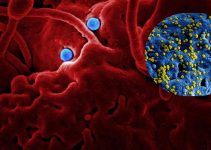Cystitis is the inflammation of the bladder, leading to symptoms such as pain in the lower abdominal area and urinary urgency.
Urinary tract infections are usually the cause of this condition and can be either acute or chronic.
Cystitis has three categories depending on the severity of the symptoms:
1.Acute Cystitis: This type of Cystitis lasts for less than one month (regularly a few days) and has no complications.
2.Chronic Cystitis: If the symptoms last more than one month, then it’s chronic Cystitis which often has complications such as kidney failure.
3.Recurrent acute Cystitis: Also known as acute pyelonephritis, is a condition in which a person has a recurrence of acute Cystitis; it can happen more than two times within six months.
Recurrent acute Cystitis can be an annoying condition to deal with, but the good news is that antibiotics can usually treat it successfully.
Symptoms of Cystitis in adults
- Sudden urge to urinate
- Difficult urination
- Dysuria (pain on urination)
- Burning or stinging when you urinate
- Haematuria (Blood in the urine)
- Pain in abdomen and loin areas
- Feeling like you need to urinate again after urinating
- Feeling generally sick
- Nausea
Cystitis is not usually accompanied by fever in adults.
If your temperature is 38C (100.4F) or more, you feel pain near the kidneys, or in your back or sides, you may be experiencing a kidney infection.
Symptoms of Cystitis in children
Children who have Cystitis often experience abdominal pain, fever, and frequent urge to urinate.
It can be tough to detect if a child has Cystitis, as symptoms can be vague, and kids have trouble communicating how they feel.
Here are some signs of Cystitis you should look out for:
- Painful urination
- Frequent urination
- Fever
- Feeling weak and tired
- Easy irritability
- Loss of appetite
- Vomiting and Nausea
Cystitis can also manifest other common symptoms seen in adults, like pain when peeing, peeing more than usual, and a tummy ache.
Causes of Cystitis
The most typical cause of Cystitis is bacteria, although it can sometimes happen when the bladder is irritated or damaged for another reason.
Some bacteria that enter the bladder can cause Cystitis, Escherichia coli (E. coli) being the most common. This bacteria lives in the intestines and the gut.
Chronic irritation of the bladder can also cause Cystitis, for example, from urinary stones or previous surgery to remove a bladder section.
Women are more susceptible to Cystitis because their urethra is shorter, coming out closer to their anus.
Therefore, it facilitates the entry of bacteria from the anus to the bladder.
Natural ways to fight Cystitis
You can fight Cystitis naturally by making sure you drink enough water, taking a probiotic supplement, adding oregano oil to your diet, and consuming more cranberry juice.
1. Drinking enough water
Drinking plenty of water is one of the most important things for your body to function correctly.
It helps flush out waste and toxins from your body.
Drinking enough water can help ward off many health problems, including Cystitis.
2. Taking probiotics
Many women suffer from urinary tract infections. Researchers are not sure why, but the number one culprit is the bacteria in the bladder.
One way to reduce this is by consuming probiotic foods that help keep your system in balance.
3. Cranberry juice
The need for cranberry juice to combat Cystitis is a hot topic of debate. The research on this subject is mixed, with some studies showing a decrease in symptoms and increased protection against UTI, while others show no change in symptoms.
4. Oregano oil may help fight Cystitis.
A study has found that oregano oil can be an effective remedy for bladder infections. Oregano oil contains thymol, which has been shown to kill bacteria and inhibit the growth of bacteria.





